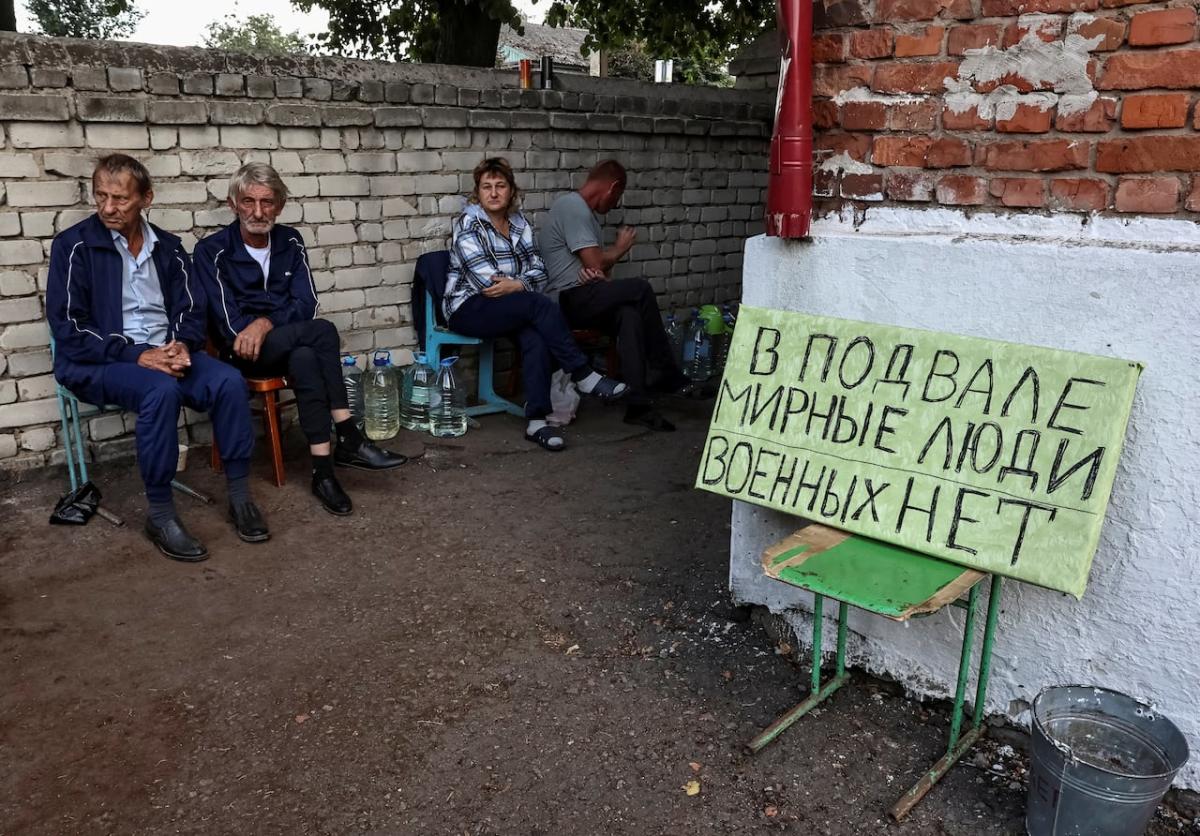On the streets of the western Russian city of Kursk, dozens of concrete bomb shelters are being installed at bus stops, parks and squares as air raid sirens now routinely ring out.
For two and a half years, the region of Kursk found itself mostly out of reach from the war zone, but that changed when Ukrainian forces pushed over the border earlier this month, dramatically thrusting the front line into Russia, forcing tens of thousands to flee their homes.
“There are still quite a large number of people left in the occupied territories, mostly elderly people,” said Maria Skrob, who spoke to CBC News over a social media messaging app from the city of Kursk.
“Unfortunately, we can’t go everywhere, many villages are completely inaccessible to us due to drones, and constant shelling.”
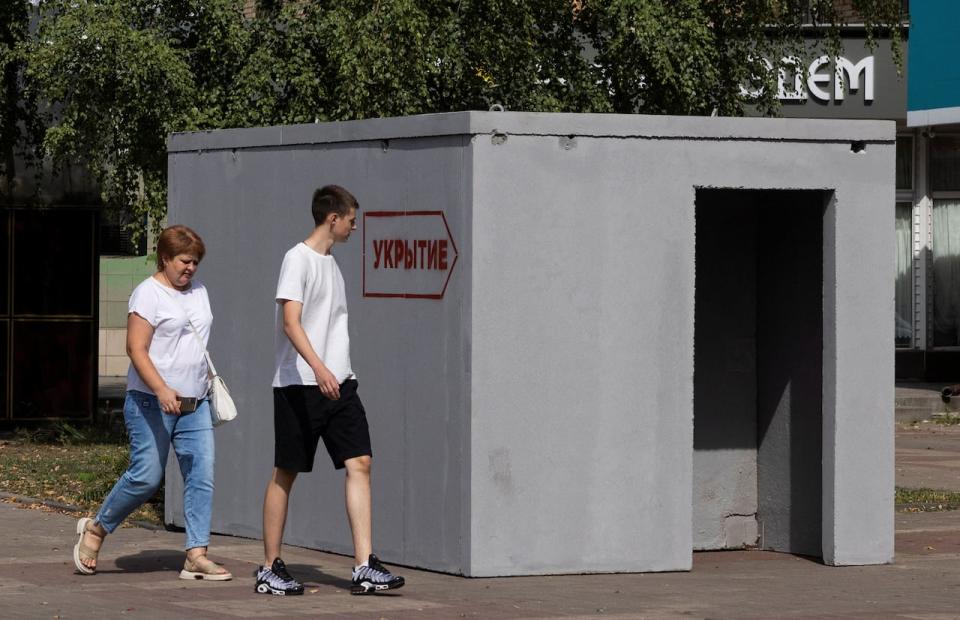
People walk past a reinforced concrete bomb shelter installed in a street in the course of Russia-Ukraine conflict, in Kursk, Russia on Wednesday. The sign on the construction reads: ‘Shelter.’ (Maxim Shemetov/Reuters)
According to Russian officials, there were just over 150,000 people in border areas that needed to be evacuated, and as of Aug. 22, which is when it appears they provided the last public update, 133,000 had already been moved or left on their own.
Skrob is volunteering along with 30 others to help evacuate people from areas closer to the front line and chose to speak to the media because she felt some Russians were vilifying the locals online, accusing them of abandoning the countrymen who were left behind.
On social media, it is easy to find angry posts from people criticising the local authorities, for not notifying residents early enough about the unfolding emergency, nor organising evacuations.
Other groups reveal desperate family members whose conscripted sons, some as young as 18, have been missing since Aug. 6, when Ukrainian forces launched the surprise attack.
But while emotions are bubbling up in Kursk, Russian political observers doubt that the situation will translate into any significant pressure on President Vladimir Putin, who is trying to minimize the consequences of Ukraine’s incursion and distance himself from it. Experts believe he will spin it in an attempt to justify his decision to launch the war in the first place.
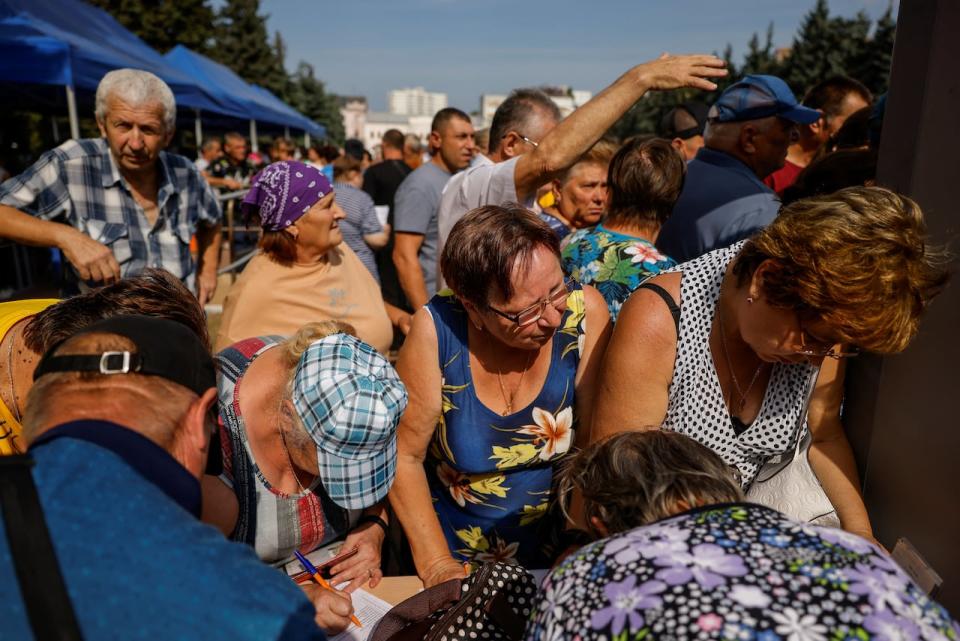

People queue at a humanitarian aid distribution centre for residents, who were evacuated from the Kursk region. (Maxim Shemetov/Reuters)
Lightning offensive
Ukraine’s president said the surprise attack into Kursk was meant to help Ukraine “restore justice.”
The military has seized more than 1,200 square km of the region and dozens of settlements, many of which are reportedly now without power or electricity.
“People did not expect that everything would happen so abruptly,” said Sudya Grom, a man who lives near Kursk and spoke with CBC through a social media platform.
“No one knows when it will end and will our relatives survive.”
His wife’s parents were trapped in the village of Snagnost, which lies about 15 km from the Ukrainian border.
He said they were sheltering in the basement with no phone service and blamed officials for doing “nothing” to help get them out.
“It is very dangerous because there are clashes,” Grom wrote.
“The only hope is for some green corridors for civilians.”
Russian officials have said that more than 30 civilians have been killed in Kursk so far, but there has been no mention of military deaths, including young conscripts who had been stationed in the area as part of their mandatory service.
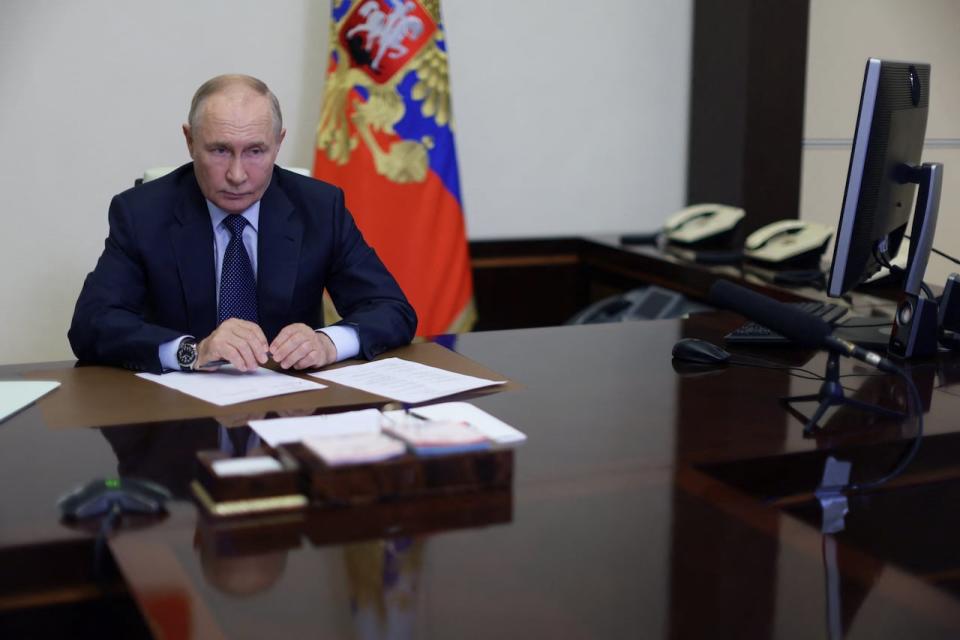

Russian President Vladimir Putin chairs a meeting by video link on situation in Belgorod, Kursk and Bryansk regions on Aug. 22. (via Reuters)
Conscripts in combat
Under Russian law, conscripts are not supposed to be deployed to fight outside of the country, but many were stationed in the Kursk region before the attack. Families fear others will be deployed to border areas as Russia’s security service has enacted “anti-terrorism” measures in three Russian regions that border Ukraine.
The measures which give authorities sweeping powers were instituted on Aug. 10, which is when Ivan Chuvilyaev started seeing a big increase in messages from concerned relatives contacting his organization for advice.
Chuvilyaev, who left Russia in 2022 because he was against the war, works for a Georgian based non-profit called Go by the Forest which helps Russian men avoid conscription.
He told CBC news that his group has received 150 appeals from men and their families who are trying to avoid being sent into Kursk
He has heard of conscripts being sent into the region from St. Petersburg, Moscow and even Siberia.
On social media, mothers have posted pleas and made videos looking for their sons including a mother who said she was “begging” the Ministry of Defence to “withdraw all conscripts from the combat zone.”
“Don’t kill our kids. Give them back to us,” she said in her emotional video appeal.
CBC News recently spoke to some Russian conscripts who were captured and imprisoned in the Kharkiv region. The men recounted having very little training before the attack.
When the Kremlin spokesperson was asked about reports of conscripts being sent to Kursk, and forced to sign military contracts, Dmitry Peskov called the claims “an absolute distortion of reality” and refused to comment further.
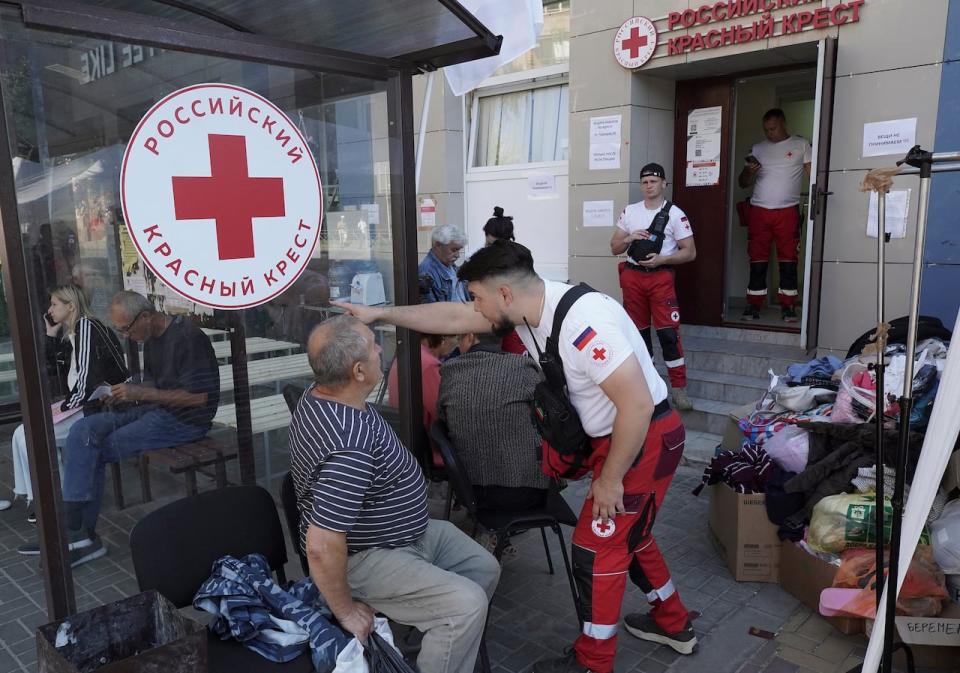

War-displaced people receive humanitarian aid at a Russian Red Cross distribution point in Kursk on Aug. 15, following Ukraine’s offensive into Russia’s western Kursk region. (AFP via Getty Images)
Putin’s response
Putin has described Ukraine’s offensive as an attempt “with the help of its Western masters” to improve its position ahead of possible negotiations.
On Aug. 12, he vowed a “worthy response,” but has said little in the wake of the first invasion of Russian territory since the Second World War.
Ten days later during a televised briefing with officials from the border regions, he said any problems with security issues “are the responsibility of the security agencies.”
During the 45-minute meeting, officials detailed the humanitarian assistance that had been set up to help evacuees, along with how government aid would be paid out to residents.
There was no talk about people trapped in their homes, unable to leave.
“The reaction was absolutely usual,” said Tatiana Stanovaya, a Russian political scientist and founder of the firm R. Politik.
“Each time the Russian authorities try to downplay the significance of a situation and to diminish its importance.”
She said that was the same tactic used when Crimea is repeatedly hit by missiles and drones.
Unlikely political repercussions
Stanovaya says while there is a lot of anger in Kursk, she thinks it is unlikely to translate into an anti-Putin movement, as people are also angry at local officials, Ukraine, and NATO.
She says across the country, people seem to be more anxious about the mobilization drive in the fall of 2022 than this incursion.
Apart from the Kursk region, she says life in Russia continues, and the attack doesn’t really affect day-to-day life.
“I don’t think there will be significant consequences politically,” she said in a phone interview with CBC News.
“It is embarrassing but it is not decisive for the course of the war.”
She believes that Russia hasn’t responded more forcibly to the Ukrainian attack because its military is stretched across the sprawling frontline, and it remains focused on seizing more territory in Donetsk, where Russian forces are advancing toward the strategic city of Pokvrovsk.
“Putin sees this incursion as a trap, which is aimed to distract Russia from its main offensive. He doesn’t want to fall into this trap and he will not.”
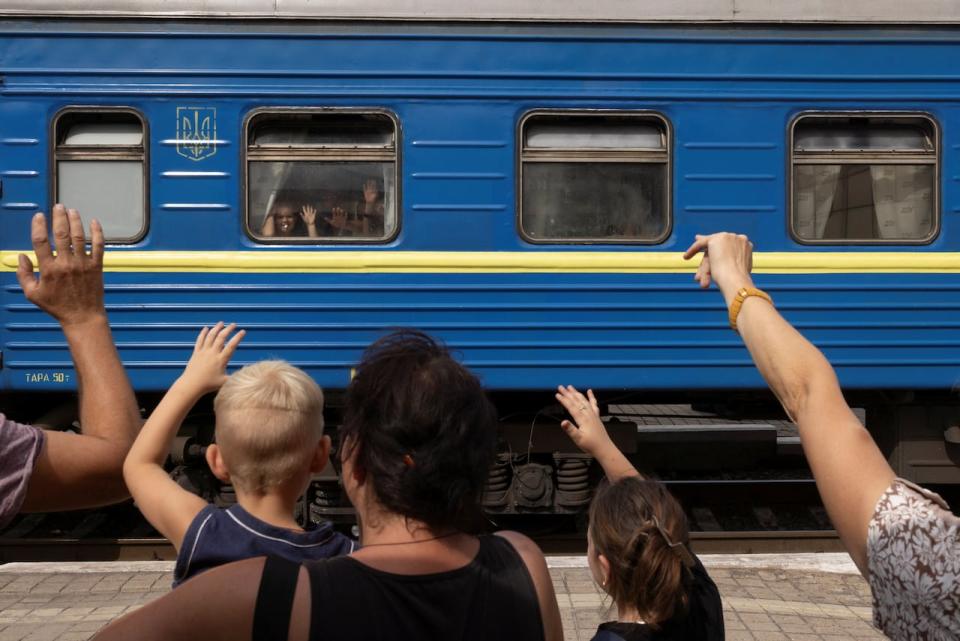

People bid farewell to relatives as they flee on an evacuation train from Russian troop advances in Pokrovsk, Ukraine, amid Russia’s attack on Ukraine, on Aug. 22. (Thomas Peter/Reuters)

